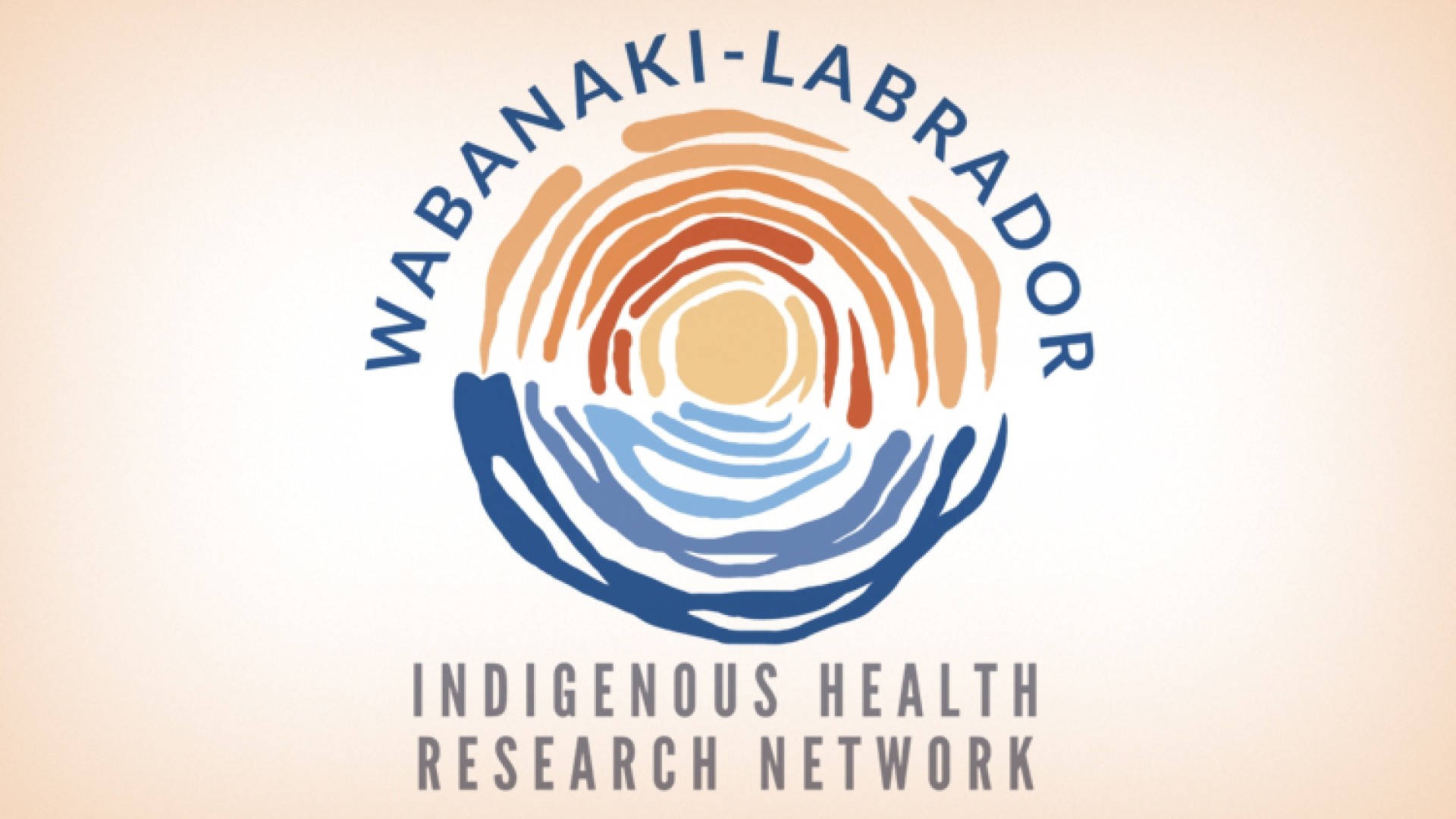
Building capacity for Indigenous-led and supported community-based health research is the aim of a dynamic, diverse, interdisciplinary and inclusive network of Indigenous and academic partners who have come together to form the Wabanaki-Labrador Indigenous Health Research Network.
The network is led by Indigenous communities and regional partners, with the Labrador Institute of Memorial University, St. Francis Xavier University and Dalhousie University, and includes Mi’kmaq, Wolastoqiyik, Passamaquoddy, Inuit, and Innu community members, organizations, health professionals, students, academics, traditional healers and allies from the four provinces of Atlantic Canada.
“This transformative initiative is funded by the Canadian Institutes for Health Research for up to 15 years, with a maximum funding amount of $700,000 per year. Through a Two-Eyed Seeing, co-learning, and relational approach, this network prioritizes community-initiated and directed research to improve Indigenous health in Atlantic Canada, based on the health priorities of Indigenous peoples,” says Dr. L. Jane McMillan, a StFX faculty member and a co-principal investigator (PI).
Along with Dr. McMillan, co-PI’s in the project include Drs. Debbie Martin, Dalhousie University/NunatuKavut (named principal investigator); Margot Latimer, Dalhousie University; John Sylliboy, McGill University/Eskasoni and Millbrook First Nation; and Ashlee Cunsolo, Labrador Institute at Memorial University.
Also involved at StFX are faculty members Drs. Katie Aubrecht, Ann Fox, Cathy MacDonald and Joanne Whitty-Rogers.
“The objectives of the Wabanaki-Labrador Indigenous Health Research Network are to enhance capacity for undertaking meaningful, relevant and respectful Indigenous health research in the region; shift the balance of power in the research relationship from academic institutions to Indigenous communities in the region; support communities to address their health research priorities through top-tier research and research capacity-building; and share the experiences of the network widely and foster its sustainability,” Dr. McMillan says.
She says the name for the network comes from the reference to this vast and diverse region as Wabanaki-Labrador, since Wabanaki refers to the easterly location, where the sun rises first, of the Mi’kmaq, Passamaquoddy, and Wolastoqiyik and Labrador encompasses the northern and sub-arctic territory of the Inuit and Innu.
The team is directed by the Wabanaki-Labrador Advisory Committee and Elders and Knowledge Keepers from across the Atlantic region and include members of Nunatsiavut Government, Mi’kmaq Confederacy of PEI, Ugpi’ganjig Health Centre, Eel River Bar FN, Madawaska FN, NunatuKavut Community Council, the Atlantic Policy Congress of FN Chiefs Secretariat, Mi’kmaq Native Friendship Centre in Halifax, Eskasoni Community Health, Millbrook FN, Union of Nova Scotia Indians and the IWK.
“I am most excited about the principles and the activities of the Wabanaki-Labrador Network,” says Dr. McMillan, noting that the network is guided by the principles of protecting Indigenous knowledge, cultures and ceremonies; increasing sovereignty over research (and the data that results from it); moving forward in a relational way (considering research ethics from the perspective of ‘all our relations’); centering, enhancing, innovating and strengthening Indigenous knowledge in health research; and building capacity for research done in a ‘good way’ through mentorship.
StFX researchers also involved in the network are looking forward to its impact.
“It is exciting to be part of this significant research initiative, which will certainly be impactful on the health and wellbeing of Indigenous peoples of Labrador. The research team certainly has the expertise in Indigenous research with Indigenous communities to make this initiative a reality,” says Dr. Cathy MacDonald.
“I hope that learning with and from a community of people committed to land-based learning and research respects traditional knowledge and helps achieve shared goals,” says Dr. Ann Fox.
Dr. Katie Aubrecht says she is humbled to join John Sylliboy as a Sex and Gender Champion and to learn and work with communities and researchers to decolonize disability, gender and sexualities, and mobilizing to center the knowledges and experiences of Indigenous women, girls, LGBTQ and Two-Spirit People within health research.
"I am very excited to work with students, colleagues and communities on this Wabanaki-Labrador Indigenous health research initiative to improve and promote the health of Indigenous Peoples," says Dr. Joanne Whitty-Rogers.
Dr. McMillan says the activities of the Wabanaki-Labrador Network include Research and Innovation Co-Learning Lodges, to build capacity in community to direct, lead, and independently oversee the roll-out of community-based health research from design to dissemination.
As well, activities include Systematic Investments in Research Ethics and Governance, including hiring an Indigenous research ethics coordinator to help strengthen the capacity for community-led ethics review processes, enhance Indigenous-specific ethics review processes in academic and governmental institutions, and create a virtual Co-Learning Lodge that provides appropriate ethics materials for researchers; and a Community-Based Research Program that supports workshops and research awards that address community health research priorities.
Additionally, activities include a Trainee Program that builds off the successes of the Atlantic-Indigenous Mentorship Network; Strategic Communications and Knowledge Exchange, to ensure that the work of the Network are shared both strategically and widely; and Knowledge Gardening: Sustainability and Evaluative Activities, such as surveys, the distribution of annual reports, and hosting annual face-to-face meetings to foster shared learnings.

